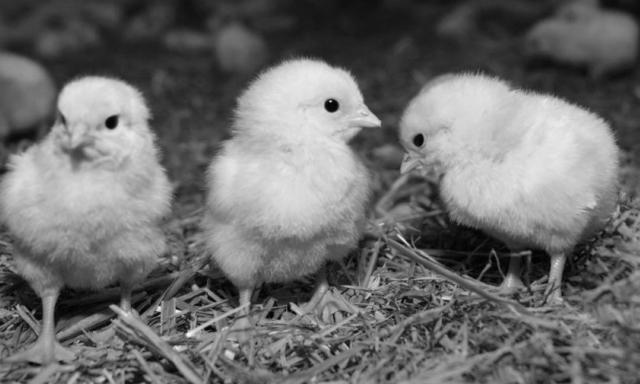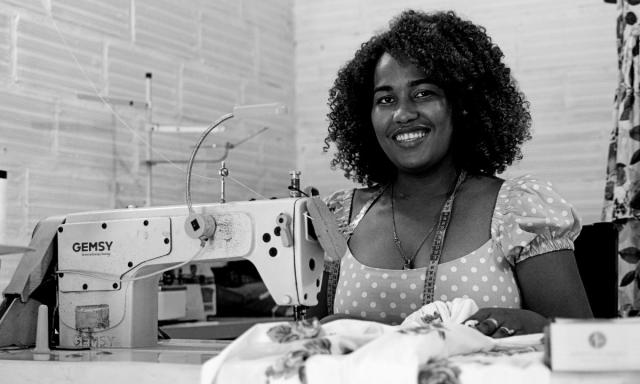
Partnering for Poultry: A Public-Private Partnership
Public-Private Partnerships That Are Changing the World
The Darden School of Business’ Institute for Business in Society partners with Concordia and the U.S. Department of State Secretary’s Office of Global Partnerships to present the annual P3 Impact Award, which recognizes leading public-private partnerships that improve communities around the world. This year’s award will be presented at the Concordia Annual Summit 18–19 September 2017. The five finalists will be highlighted on Darden Ideas to Action on Fridays leading up to the event.
The Partnership:
Partnering for Poultry
The Partners:
- EthioChicken
- United States Agency for International Development (USAID)’s Feed the Future Partnering for Innovation program
The Social Challenge:
Economic Development, Food Security
Among the world’s poorest countries, Ethiopia struggles not only with high rates of poverty, but also malnutrition. One main cause of malnutrition is low protein consumption. While chicken meat and eggs are important sources of protein, the country’s dominant indigenous poultry breeds have low weight gain and low egg-laying productivity — and are highly susceptible to disease, with a high mortality rate.
The Idea and the Action:
Focusing on two regions of Ethiopia, Amhara and Tigray, the partnership seeks to improve productivity and reduce costs by increasing access to improved poultry breeds and training smallholder farmers to raise them effectively. EthioChicken imports improved breeds, as well as mills and supplies feed and vaccines to ensure their survival and health. A network of rural sales agents distribute the chickens and feed to farmers, in addition to providing technical assistance and customer service pre- and post-purchase. The improved breeds grow faster and produce more meat and eggs than local breeds, enabling the farmers to earn over three times as much revenue selling eggs and two times as much selling live chickens. The partnership presents a promising income-generating opportunity for local women, as poultry production requires little land and capital, to which women often have limited access.
The partnership also works with local marketing firms to promote the importance of nutrition to Ethiopian communities, which has attracted both farmers and consumers to the improved poultry breeds.
The Impact:
Within the 15-month partnership, EthioChicken recruited and trained 450 sales agents, who sold 3.2 million day-old chicks to approximately 640,000 farmers in Tigray and Amhara. It increased access to improved poultry breeds, which helps to improve nutrition directly with increased egg and meat consumption, and also indirectly with increased incomes for agents and farmers to buy food that is more varied. As a result, agents, farmers and consumers saw an improvement in the quality of their lives.
Finally, EthioChicken signed a 25-year agreement with the government of Rwanda to implement the innovative business model in the country’s poultry market. It will continue to improve the lives of more farmers, decreasing poverty and malnutrition rates in the process.
The Faculty Insight:
In my research, I study what is learnable and teachable about high-performance entrepreneurship. It is fascinating to observe the lessons expert entrepreneurs learn in putting business and society together in interesting, innovative, value-creating ways. For example: Competent, resourceful people do not come on board new ventures for profit, because in a venture’s early stages, it is not clear if there will be profit down the road. Instead, high-potential stakeholders knock on the entrepreneurs’ doors because they want to help shape and build new futures for the world, as well as for themselves.
The study of the role of for-profit ventures in tackling big social issues is something I call “building markets in human hope.” Key to the concept is that, while funding may be needed to kick-start scaling of a viable business, the goal is to create a model in which market demand has funders knocking on the venture’s doors, not one in which the entrepreneur is constantly pursuing funding. EthioChicken is a good example of such an initiative; not only does it bring better nutrition and more jobs and income to Amhara and Tigray, it does so through a market system driven by demand, not donor supply.
Aid assumes and asks for no return; a markets in human hope approach assumes and fully expects economic as well as noneconomic returns to investing in the well-being and capabilities of human beings. I congratulate EthioChicken as an exemplar of markets in human hope.














